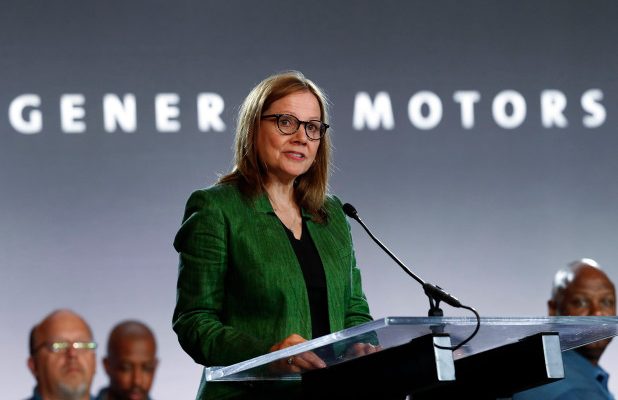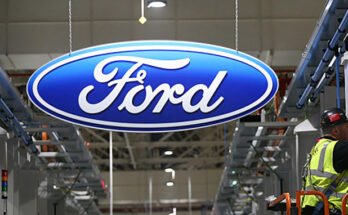By Elisa
General Motors said Wednesday its new labor deals after a lengthy US strike will cost it $9.3 billion even as it outlined $10 billion in share buybacks, a 33% dividend increase and “substantially lower” spending at its robotaxi unit Cruise.
The buyback is the equivalent at Tuesday’s closing price to nearly a quarter of GM’s common stock.
Its shares were down about 14% this year before closing up 9.4% at $31.60 on Wednesday.
The stock is still below the $33.66 price it closed at just ahead of the UAW strike’s start on Sept. 15.
Shares in Ford and Chrysler parent Stellantis, which also were hit by the UAW strike, were up 4.3% and 4.8%, respectively.
GM lowered 2023 profit expectations after the strike by the United Auto Workers.
The Detroit automaker has struggled to boost its stock price as it dealt with the strike and with problems at its Cruise self-driving vehicle unit and rollout of its new electric vehicles.
“Finally some good news for GM and this was strong outlook and comments from Barra & Co post the UAW debacle,” Wedbush Securities analyst Daniel Ives said in an email. “Now it’s about getting the train back on the tracks and this a great start.”
The $9.3 billion in additional costs through 2028 is for agreements with the UAW and Canadian union Unifor, and translates to about $575 per vehicle over the life of the deals.
GM’s new guidance reduced expected net income attributable to stockholders for 2023 to a range of $9.1 billion to $9.7 billion, compared to the previous outlook of $9.3 billion to $10.7 billion.
That includes an estimated $1.1 billion EBIT-adjusted impact from the UAW strike, which lasted just over six weeks, primarily from lost production.
The total impact in 2023 is $1.3 billion including the higher wages and benefits in the deal.
“Now that we have a ratified contract and a clear path forward that includes greater operating investment efficiencies, we can resume returning capital to shareholders per our plan,” GM CEO Mary Barra said on an investor conference call, during which officials set out the largest US automaker’s updated targets.
Shares disappointing
However, she also acknowledged GM’s stock price was “disappointing to everyone,” pointing to how shares at about $28 were 15% below GM’s 2010 initial public offering price.
GM shares currently trade 4.4 times forward profit estimates, below 6.3 for Ford, 8.8 for Toyota and 66.1 for EV market leader Tesla.
However, Volkswagen and Stellantis’ share price multiples are even lower at 3.5 each.
GM said earlier this year it would cut fixed costs by $2 billion by the end of 2024 and then followed up in July with plans for another $1 billion in cost reductions.
In April, GM said about 5,000 salaried workers had taken buyouts.
GM said it would cut costs at Cruise, which has suspended all US testing after a crash in California last month prompted that state’s regulators to bar the company from testing driverless vehicles. Cruise, which is cutting jobs, lost more than $700 million in the third quarter and more than $8 billion since 2016.
“We expect the pace of Cruise’s expansion to be more deliberate when operations resume, resulting in substantially lower spending in 2024 than in 2023,” Barra said.
GM Chief Financial Officer Paul Jacobson said spending on Cruise in 2024 will be down “hundreds of millions of dollars.”
Barra added that GM needed to “rebuild trust” with state and federal regulators, and others Cruise works with.
Barra said she was “disappointed” with EV production this year due to difficulties with battery module assembly, but GM expects “significantly higher” production and “significantly improved” profit margins in that business in 2024.
Jacobson said GM was aiming for single-digit pre-tax margins on EVs by 2025, including Inflation Reduction Act benefits.
However, GM also said the new labor deals will add $3 per kilowatt-hour to battery cell costs.
GM now faces higher costs under a new contract with the UAW.
The company said it was finalizing its budget for next year “that will fully offset the incremental costs of our new labor agreements and the long-term plan we are executing.”
University of Michigan professor Erik Gordon said GM’s actions flew in the face of company arguments during the strike it couldn’t afford a lucrative deal for its US workers.
GM expects to increase its quarterly common stock dividend by 3 cents to 12 cents a share beginning in 2024.



